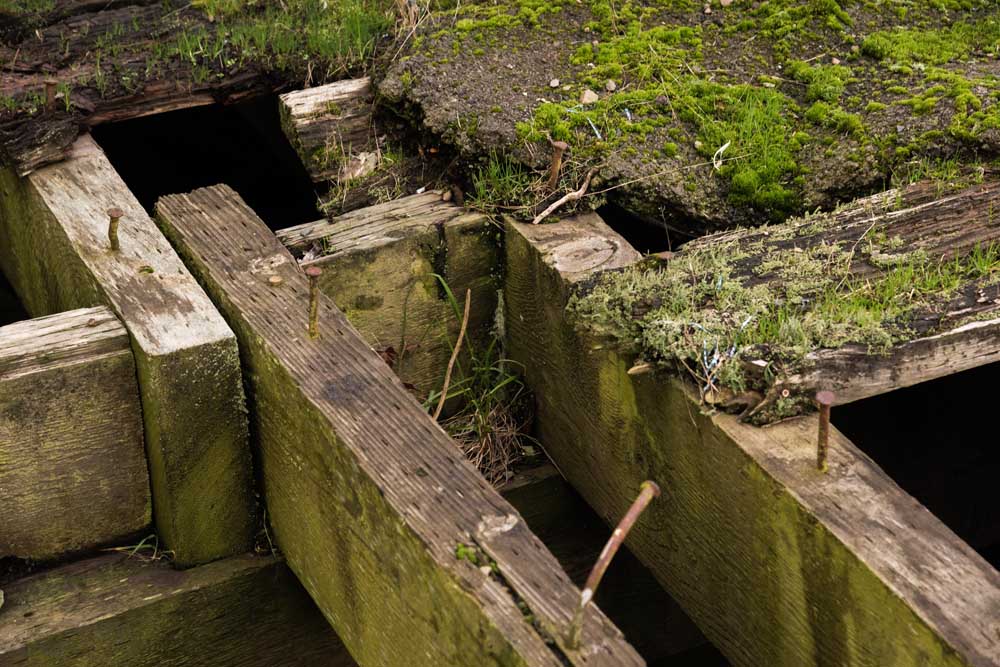State Department of Environmental Quality issues fines to Port of Astoria and seafood processors
Published 2:30 pm Thursday, June 27, 2024

- A rehabiltation project at Pier 2 is an infrastructure priority for the Port of Astoria.
The state Department of Environmental Quality issued fines to the Port of Astoria, Da Yang Seafood and Bornstein Seafoods for wastewater and stormwater violations.
Trending
The penalties — which total $28,800 for the Port, $150,000 for Da Yang Seafood and $22,800 for Bornstein Seafoods — all relate to the poor condition of Pier 2, which houses processing facilities and has been a key infrastructure priority for the Port.
The notification from the Department of Environmental Quality alleges that the Port violated its industrial stormwater discharge permit.
“DEQ issued this penalty because, as the permit holder, it is the Port’s responsibility to ensure that stormwater discharges from Pier 2 are not contaminated by seafood processing activities, that the pier deck is regularly cleaned, and that the stormwater catch basins and other discharge points on the pier are regularly maintained,” according to the state’s notice.
Trending
The Port is in the beginning stages of an extensive rehabilitation project for Pier 2, having secured over $27 million in federal and state funding. Improving the pier in Uniontown has become the Port’s top priority in recent years, as a failing seawall and rotting decks increasingly threaten the entire structure.
Will Isom, the Port’s executive director, explained that the planned rehabilitation will address the issues that have drawn the attention of the state agency, but those fixes are likely months or years down the road.
“It’s not as if the Port is resisting in terms of implementing a solution,” Isom said. “It’s not as if we don’t desire to get a solution in place. But the problems obviously are large. And in the document where it talks about stormwater going through cracks in the pier decking facility, there’s no easy short-term solution to that.”
The renovation of the pier is also crucial to supporting seafood processing, which Isom has referred to as the “lifeblood” of the Port.
Processors around the state — including Bornstein Seafoods and Da Yang Seafood — have faced a challenging and uncertain landscape for wastewater permitting, since an updated 900-J permit issued by the Department of Environmental Quality has drawn criticism from processors and advocates who argue the new limits are impossible to meet.
Aiming to ease this burden on processors, the Port is looking to construct a byproduct recovery center on the pier, which would consolidate wastewater treatment for both processors into one shared facility managed by the Port. Last month, the Port Commission voted to approve an application for a feasibility study through Business Oregon, the state’s economic development agency.
Isom expressed frustration at the state’s penalty, given the Port’s leading role in working to find environmentally conscious solutions to wastewater challenges.
The Port has also worked closely with the Department of Environmental Quality to clean up petroleum contamination between piers 2 and 3, a project known as AOC4, or Area of Concern 4.
“We’ve also worked with DEQ, we’ve had DEQ out here for site visits to go over the (byproduct recovery center) project and also talked a lot about getting a complete solution to Pier 2 and AOC4, and doing our best to find long-term solutions,” Isom said. “And it felt like, if the goal is to protect the environment, I’m not sure how this fine gets us closer to that end.”
The Port has appealed the penalty and will attend a hearing on July 17.
Representatives for Da Yang Seafood and Bornstein Seafoods did not respond to requests for comment.









